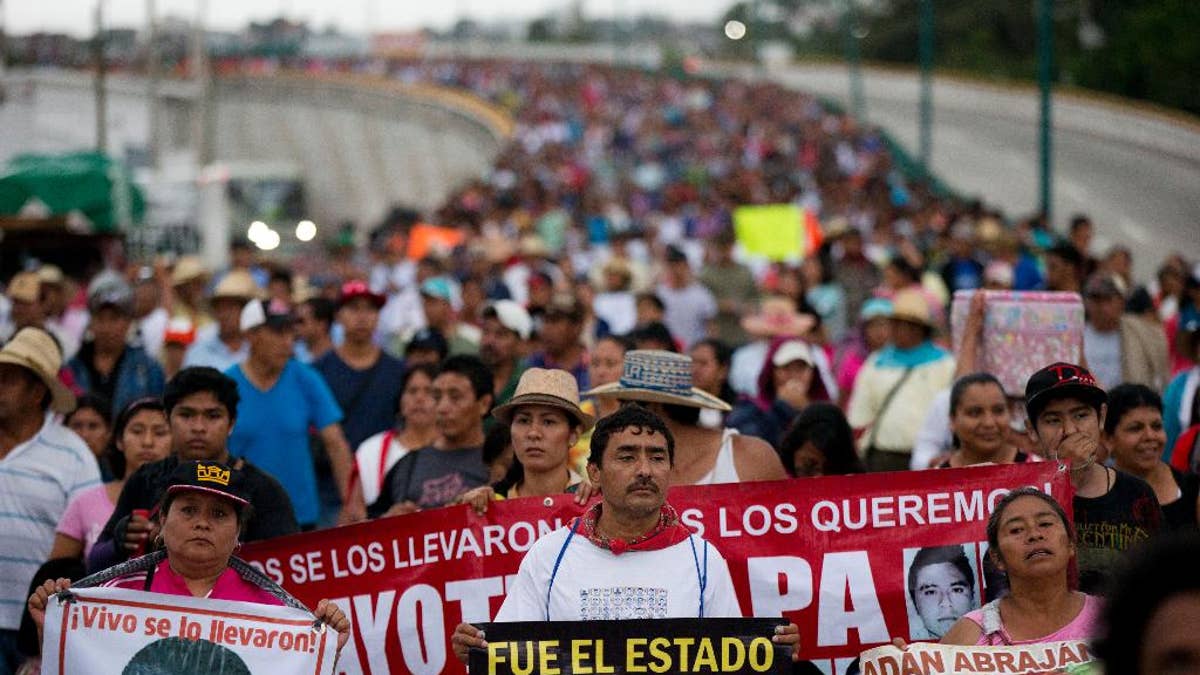
FILE - In this Saturday, Sept. 26, 2015, file photo, relatives of the 43 missing Ayotzinapa teachers' college students lead a march marking the one-year anniversary of the students' disappearances in Chilpancingo, Mexico. In a document released Sunday, Nov. 8, 2015, Mexico's National Human Rights Commission is criticizing the Attorney General's Office for failing to address all the recommendations it made in July about the investigation into the fate of 43 missing college students. (AP Photo/Rebecca Blackwell, File) (The Associated Press)
MEXICO CITY – Mexico's National Human Rights Commission is criticizing the Attorney General's Office for failing to address all the recommendations it made in July about the investigation into the fate of 43 missing college students.
In a document released Sunday, the official commission said the office's response to its report has been "insufficient and imprecise" and prosecutors have failed to provide documentation to supports some of their positions.
The commission issued a list of 32 omissions in and recommendations for the investigation of the disappearance of the teachers' college students, a case that has sparked large protests and outrage around the world.
The students from the southern state of Guerrero disappeared in the city of Iguala while commandeering transit buses to take them to a protest. The Attorney General's Office says the students were detained by local police on Sept. 26, 2014, and handed over to a drug cartel, which killed and incinerated them at a garbage dump. Their remains were allegedly put in garbage bags and dumped in a nearby river.
But the commission's July report said the federal investigation had not developed profiles of each of the missing students that would include basic details such as blood type, fingerprints and distinguishing characteristics such as scars or tattoo. Many of the report's observations concerned the collection and analysis of evidence from the garbage dump in Cocula and the San Juan river where allegedly bags of their remains were dumped.
Later, an independent panel formed by the Inter-American Commission on Human Rights also dismantled the government's official version of events.
The Mexican human rights commission said that of the 26 observations it made in its July report that related to the federal Attorney General's Office — there were also recommendations for state and local authorities — two were "partially attended to; one was partially addressed with a minimal advance; three are the process of being attended to and 20 weren't addressed" at all.
The commission said that responding to its recommendations would help determine what happened to the students, a prerequisite for "fulfilling the right of the victims to the truth, to justice and to receiving compensation for damages, which are all necessary for making sure that such acts are never repeated."
